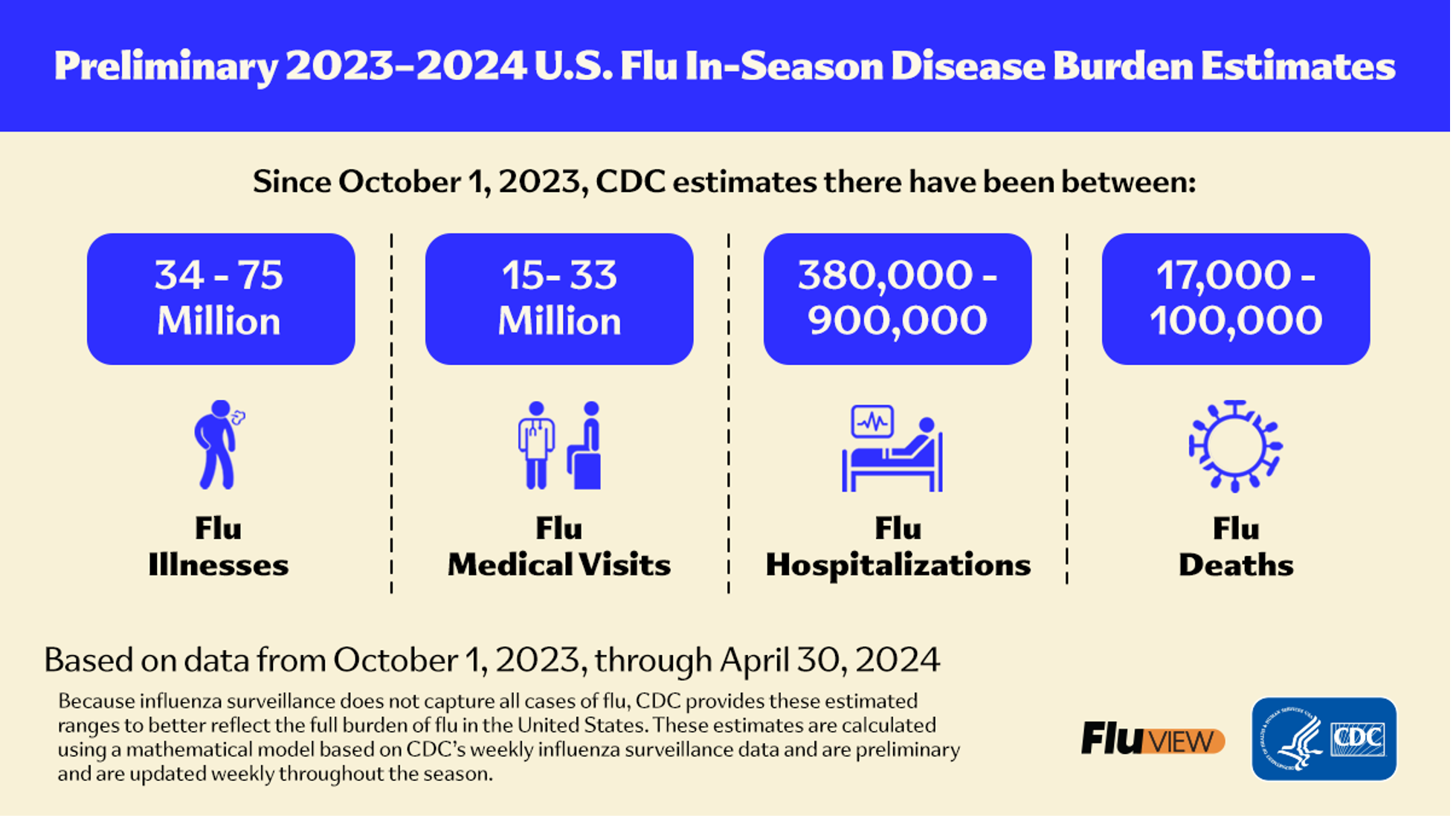


According to the Centers for Disease Control and Prevention (CDC), all 2024-2025 flu vaccines have been updated to protect against the most circulating flu virus variants. Trivalent flu vaccines are designed to protect against three flu viruses (an A(H1N1) virus, an A(H3N2) virus, and a B/Victoria virus). Both trivalent and quadrivalent flu vaccines are expected to offer similar protection against the flu viruses they protect against.
Vaccinating against the flu is an essential step in protecting against an illness that has a significant impact on people in the US:

Source: Preliminary Estimated Flu Disease Burden 2023–2024 Flu Season | Flu Burden | CDC.
For more information on flu vaccine recommendations for children and adults, availability, and access, please visit https://www.cdc.gov/flu/season/faq-flu-season-2024-2025.htm.
COVID-19 remains a significant public health challenge. To address the decrease in the effectiveness of previous immunizations' protection, the CDC has approved new COVID-19 vaccines that provide improved protection against currently circulating viral strains. The vaccine is recommended for children over six months of age and all adults.
The number of doses and the schedule for administration of these vaccines varies depending on age, vaccination history, and whether the recipient is immunocompromised. Details about CDC/s recommendations can be found here: https://www.cdc.gov/mmwr/volumes/73/wr/mm7337e2.htm#T2_down.